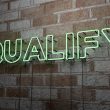San Antonio Bankruptcy Lawyer Offering Assistance
According to news reports, national student loan debt has surpassed the $1 trillion mark. More and more individuals find themselves with student loan payments that amount to hundreds or even more than $1,000 each month. Many students have graduated from college with sky-high education tabs only to be thrown into a struggling job market, making it impossible for many to stay current on their bills.
While student loan debt generally cannot be discharged through bankruptcy, there may be some debtors who can qualify for such discharges by proving that repaying their loans would cause them extreme hardship. Even those who do not qualify to have their student loan debt discharged may still be able to benefit from bankruptcy. For example, a student loan borrower may be able to use bankruptcy to get other problem debt discharged so they can direct more cashflow to paying of their student loans.
If you have defaulted on a student loan or are at risk of doing so, you need to take immediate action. Once you call my firm, I can work with you to determine the best plan for taking control of this debt. If you do not believe bankruptcy is the right solution for you, I can help you take advantage of alternatives to bankruptcy that might benefit you.
How to Qualify for Student Loan Debt Discharge
There are various tests that bankruptcy courts use to determine whether or not a student loan borrower qualifies for the undue hardship exception (or the exception that allows the debtor to discharge part or all of his or her student loan debt). Some courts use the “totality of the circumstances” test, in which they consider all factors they consider relevant to the debt issue.
Other courts use the Brunner test. This test requires the student loan borrower to meet the following criteria:
- Poverty: The debtor’s income level does not allow the individual to maintain a basic standard of living when he or she is required to repay the student loan debt.
- Persistence: It is likely that the debtor’s current financial circumstances will persist for a considerable portion of the repayment period.
- Good Faith: The debtor has made an honest effort to repay his or her student loan debt.
There are also other tests that are used by the bankruptcy courts to determine if student loan debt is dischargeable. For example, students who are trying to get loans from the Health Education Assistance Loan (HEAL) Program discharged must prove that repayment would cause “unconscionable” burdens on their lives, and also that their loans have been due for more than seven years. There may be some cases in which students can use legal defenses such as claims that fraud occurred or that the creditor engaged in unfair business practices. These types of defenses may serve as grounds from getting the debt completely removed, making the debt discharge no longer necessary.
Contact my firm so I can help you address the overwhelming financial hardship you student loans are causing you. I have more than a decade of legal experience that can be used to your benefit!




